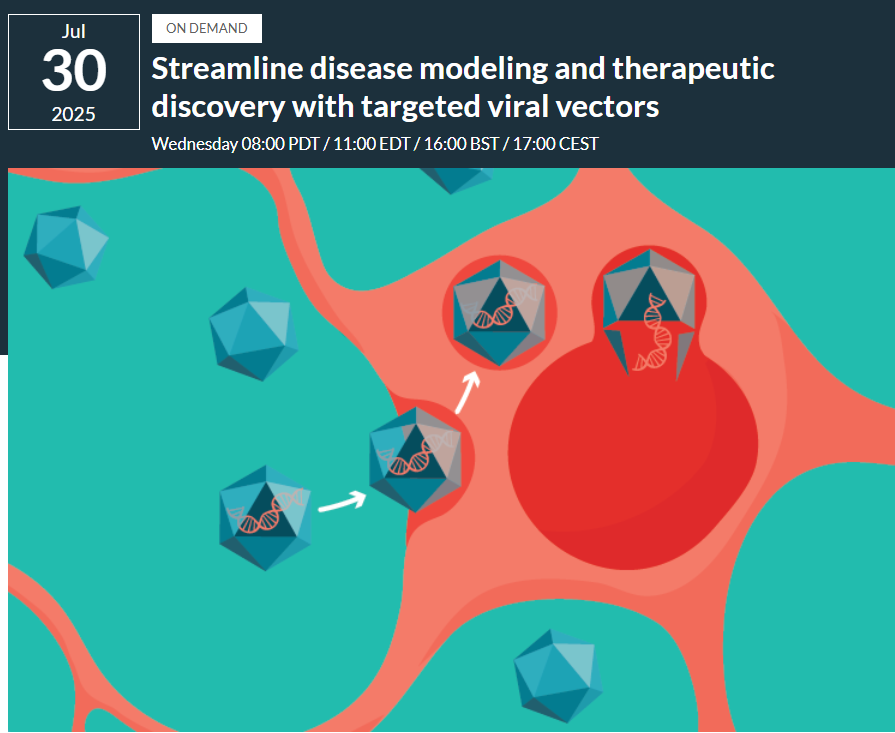Streamline Disease Modeling and Therapeutic Discovery with Targeted Viral Vectors

Overview
Explore how precise cell-specific gene manipulation using viral vectors is transforming disease modeling and therapeutic development. This webinar will highlight how targeted gene knockdown and overexpression strategies enable researchers to induce and study disease states both in vitro and in vivo, streamlining the path from discovery to preclinical validation. Attendees will gain insights on designing long-term genetic tools that accelerate early research, reduce time and cost, and generate actionable data for vector development.
The speakers will demonstrate how engineered AAV capsids enable efficient delivery to microglial cells and why promoter selection must differ between in vitro and in vivo applications for optimal expression. They will highlight real-world examples of how to bypass AAV size constraints by developing dual-vector CRISPR systems to deliver large genes. Additionally, the webinar will cover how to incorporate control viruses and collect strong preliminary data for project-specific vectors.
What you’ll learn
- Designing precise cell-specific viral vector strategies that improve accuracy and efficiency of in vitro and in vivo disease models
- Real-world examples of using dual AAV systems and CRISPR to deliver large genes and support therapeutic development
- How to collect high-impact preliminary data using control viruses and custom vectors
- How to leverage fast, end-to-end in-house viral vector services to reduce project delays
Speaker

Abhilasha Gupta Ph.D
Abhilasha Gupta, Ph.D. is a Senior Application Scientist at Vector Biolabs with over 20 years of experience in molecular and cellular biology. She is the primary scientific resource for customers—providing expert guidance on vector design, serotype selection, and project strategy.
Before joining Vector Biolabs, Abhilasha was a Principal Scientist at SwanBio Therapeutics, leading AAV vector engineering from construct design to assay development. She also held research roles at the University of Pennsylvania and Thomas Jefferson University, contributing to gene therapy innovations in skin biology, HIV/HCV, and metabolic diseases.
Abhilasha earned her Ph.D. from the University of Melbourne, where she investigated the nuclear transport of AMPK and its role in cellular metabolism.
Known for her collaborative approach and problem-solving mindset, Abhilasha combines hands-on vector engineering expertise with a passion for helping researchers advance their gene therapy goals—whether optimizing small preclinical studies or scaling toward clinical development.
